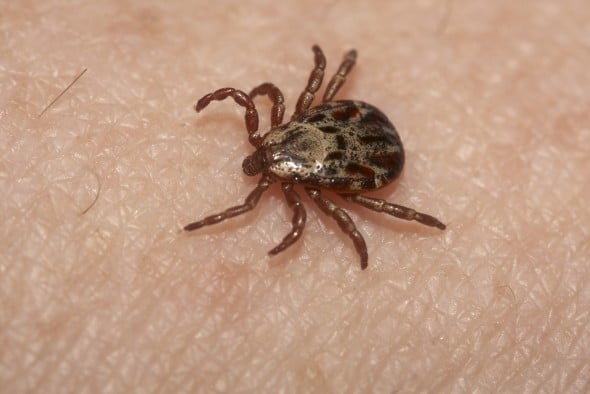The Wyoming Department of Health (WDH) is reminding Teton County residents and others across the state to take steps to prevent tularemia after an infected animal was found recently in the Wilson area.
A dead marmot found in Crater Lake in the Bridger-Teton National Forest near Wilson earlier this week tested positive for tularemia, a disease that can be serious and potentially deadly for humans. Tularemia, also known as “rabbit fever” or “deer fly fever,” frequently affects rabbits, hares and rodents such as marmots.
“People may become ill with tularemia after being bit by ticks, deer flies or horse flies,” said Dr. Alexia Harrist, state health officer and state epidemiologist with WDH. “It can also be transmitted by handling infected animals, or through ingestion or contact with insufficiently cooked meat or untreated, contaminated water.”
“Because of the lake location involved with this animal, we are reminding people that it is never a good idea to drink untreated water,” Harrist said. “Tularemia and other diseases such as cryptosporidiosis, giardiasis and shigellosis can be passed through contaminated water even if the water looks clean.”
“Tick exposure is common when we walk through, play or sit in brushy and grassy areas, or handle certain animals,” Harrist said.
Steps to help avoid tularemia include:
- Never touch a dead or sick animal and give wildlife their space.
- Wear light-colored clothing to make it easier to see ticks crawling on clothing.
- Tuck pant legs into socks.
- Apply insect repellents such as those containing 20 percent or more DEET and/or picaradin.
- Upon return from potentially tick-infested areas, search self and children for ticks and remove if found.
- Check pets for ticks; use tick control products recommended by veterinarians.
Tularemia symptoms can include fever, swollen and painful lymph glands, inflamed eyes, sore throat, mouth sores, skin ulcers and diarrhea. If the bacteria are inhaled, symptoms can include sudden onset of fever, chills, headache, muscle aches, joint pain, dry cough and progressive weakness and pneumonia.
“If you become ill and think you may have been exposed to tularemia, we recommend you seek medical care,” Harrist said.Other diseases passed by ticks in Wyoming include Rocky Mountain spotted fever (RMSF) and Colorado tick fever (CTF).
More details about tularemia are available at https://health.wyo.gov/publichealth/infectious-disease-epidemiology-unit/tularemia/.


